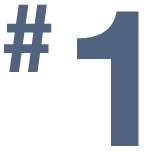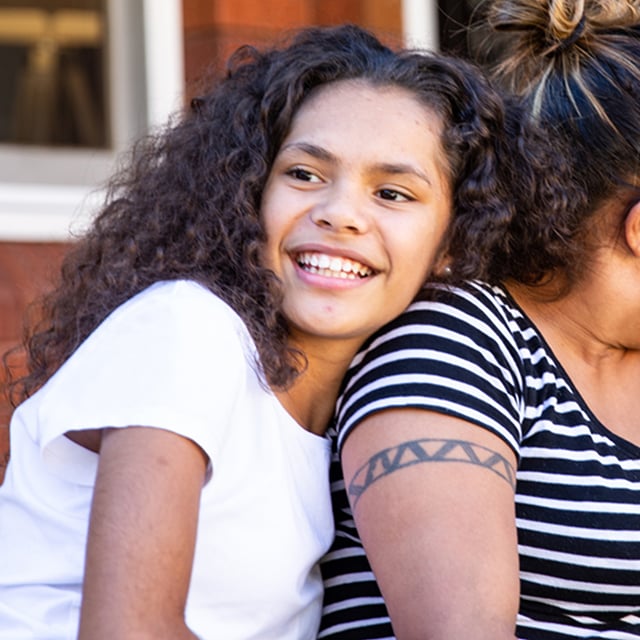Saving future lives
500+ UCSF investigators are researching cures for hundreds of childhood and adult diseases.


Alpha thalassemia is an inherited blood disorder that affects the body's ability to make enough hemoglobin, the protein in red blood cells that carries oxygen throughout the body. Without enough hemoglobin, the body doesn't get enough oxygen, which can cause anemia and associated symptoms, such as weakness, fatigue or breathlessness. Depending on the type of alpha thalassemia, the anemia's severity varies from mild to life-threatening.
Alpha thalassemia is caused by a mutation in the genes that control production of alpha globin, one of hemoglobin's two building blocks. (A change in the genes controlling the other building block, beta globin, leads to a related condition, beta thalassemia.) Everyone has four copies of the alpha globin gene, two from their mother and two from their father. The type and severity of alpha thalassemia depends on how many defective genes a child inherits.
Types of alpha thalassemia include:
The UCSF Fetal Treatment Center is a world leader in diagnosing and treating birth defects, such as alpha thalassemia, before delivery. We have more experience than any other institution with both open (traditional) and minimally invasive fetal surgery. We established the first center dedicated to comprehensive care for ATM, offering therapies that include in utero transfusions and stem cell transplantation.
To request an appointment, call the Fetal Treatment Center: (800) 793-3887
Hemoglobin H disease and alpha thalassemia major are the only two forms of the disease that cause serious anemia. Symptoms include:
Children with hemoglobin H disease or ATM may build up extra iron in the body, either from the disease itself or from frequent blood transfusions. Excess iron can damage the heart, liver and endocrine system. Over time, these kids may also develop other serious health problems, including bone deformities, gallstones, an enlarged spleen, infections, and damage to the pancreas and endocrine system (which can lead to diabetes).
People whose ancestry traces to Asia, the Pacific Islands, the Mediterranean, the Middle East or Africa are at high risk for ATM. A simple blood test can detect anemia or low numbers of red blood cells, which may indicate you're at risk for ATM. You can also have genetic screening to determine whether you are a carrier.
If screening shows you and your partner are at risk for ATM, or you've had a previous pregnancy affected by the condition, you can seek prenatal testing to check the health of your fetus. There are two types of prenatal tests:
Genetic counseling is recommended before having either test. Both tests carry a small risk of miscarriage, less than 1 in 500. The earlier a fetus is diagnosed, the better.
The main treatment for ATM is an intrauterine transfusion to give the fetus the healthy red blood cells it needs to circulate oxygen to its developing body. The treatment is repeated several times during the pregnancy, starting when the fetus is 18 to 25 weeks. Repeated blood transfusions can reverse hydrops (swelling) and allow delivery at full term.
These transfusions are done at our Fetal Treatment Center. The mother is given local anesthetic to numb the abdomen. Guided by ultrasound, the doctor inserts a needle through the abdomen and into the umbilical cord vein. The doctor first takes a sample of the baby's blood for testing and then transfers red blood cells of a compatible blood type into the umbilical cord, to be absorbed by the fetus. If the umbilical cord can't be accessed, the infusion may be given directly into the baby's abdomen. The mother and fetus receive antibiotics to prevent infection. There is a fairly low risk of miscarriage, about 5% or 1 in 20.
These transfusions allow the fetus to survive but don't cure ATM. Periodic blood transfusions and medicines to remove excess iron from the body will be necessary for the rest of the child's life.
Another therapy, now being investigated at UCSF for this purpose, is transplantation of hematopoietic stem cells, special cells that make red blood cells. Stem cell transplant offers the promise of a cure. With the transplanted stem cells, the fetus can begin making its own healthy red blood cells.
In this experimental treatment, doctors harvest stem cells from the mother's bone marrow, prepare the cells for safe injection, then deliver them when the fetus is also getting a blood transfusion. Because it takes time for the mother's stem cells to start working, the fetus will still need several blood transfusions during the pregnancy.
After birth, we test to see how well the mother's stem cells are surviving in the baby. If the treatment was only partly successful, the baby might still be cured by getting a "booster" transplant of the mother's stem cells. If this doesn't work, blood transfusions are continued after birth.
Although a stem cell transplant can cure the disease, there are risks. The fetus may become sick or not survive the therapy. Some mothers need a blood transfusion after donating bone marrow. Because this is an experimental treatment, it's an option only for patients who are eligible to enroll in our ongoing clinical trial.
Some patients may choose not to pursue treatment and to terminate pregnancy after a diagnosis of ATM. California law permits termination of a pregnancy at up to 24 weeks.
For patients interested in pursuing fetal therapy, our Fetal Treatment Center offers a formal evaluation, which includes an ultrasound; echocardiogram (heart ultrasound); and counseling by our team, which includes a surgeon, hematologist, obstetrician, genetic counselor, social worker and nurse. We'll discuss whether you're a candidate for blood transfusion alone or blood transfusion plus stem cell transplantation. With either intervention, we anticipate your fetus will need subsequent blood transfusions until birth, which can be performed either at UCSF or your local health care facility.
UCSF Benioff Children's Hospitals medical specialists have reviewed this information. It is for educational purposes only and is not intended to replace the advice of your child's doctor or other health care provider. We encourage you to discuss any questions or concerns you may have with your child's provider.

Ranked among the nation's best in 11 specialties

successful open fetal surgery in the world

in number of fetal surgery clinical trials

Stem cell transplant study
This phase 1 trial is investigating the safety and effectiveness of this treatment for patients with ATM.
 3
3
 7
7
Saving future lives
